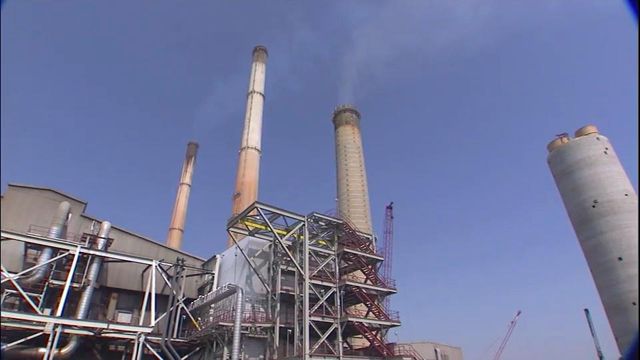NC officials concerned about new EPA carbon emission rules
North Carolina officials are still reviewing rules proposed Monday by the U.S. Environmental Protection Agency to cut carbon emissions by 30 percent nationwide over the next 15 years, but they are concerned the state might be penalized for its previous efforts to clear the state's air.
Posted — UpdatedThe EPA estimates that North Carolina had the 18th-highest rate of carbon emissions nationwide in 2012, at 1,646 pounds per megawatt-hour. The agency has set a goal for the state to cut those emissions to 992 pounds per megawatt-hour by 2030.
Officials with the state Division of Air Quality hope the EPA uses 2005 for its baseline in determining carbon reductions, rather than 2012, agency spokesman Tom Mather said Tuesday.
State laws adopted since 2002 have cut emissions from power plants and required that more electricity be generated from renewable resources.
If the EPA sets the baseline at 2012, Mather said, "We basically wouldn't get any credit for all these emissions we've reduced here in North Carolina at great expense to not only utilities, but ratepayers."
The new federal rules could require a major change to the state's energy policy, he said. "The devil's in the details," he said.
The state Department of Environment and Natural Resources sued the EPA in December over the agency's revised standards for particulate emissions. DENR argued that North Carolina was being penalized for taking earlier action that wasn't recognized in new baselines the EPA used to determine needed reductions.
Duke Energy spokesman Jeff Brooks said the Charlotte-based utility has invested in new gas-fired power plants to replace coal-fired plants in recent years to meet tougher state standards, and the new EPA goal could translate into higher electric rates for consumers.
"We're looking at what the cost implications are for complying with these rules," Brooks said. "Any potential pressures from any aspect that requires us to retire a fuel source could have a cost implication for our customers."
Instead of cost and credit, environmental groups say the state needs to focus on long-term efficiency, solar and wind energy, and public health.
"It's a huge step for action on climate change and for clean energy, and I think it's a necessary step," said David Rogers, field director of Environment North Carolina. "It's the 21st century. We should be getting our energy from sources that don't pollute."
• Credits
Copyright 2024 by Capitol Broadcasting Company. All rights reserved. This material may not be published, broadcast, rewritten or redistributed.






